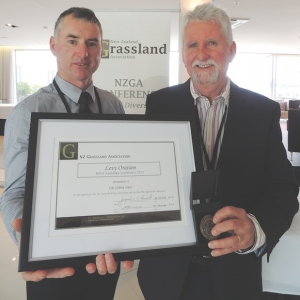“There is a huge disjunct between our export earnings and the [science] capability we are building within New Zealand,” warned industry leading scientist and consultant John Hay during his keynote Levy Oration speech to the conference.
In nine years, 2002 to 2010, just 74 of 6227 PhDs (doctorates) completed were in agriculture, horticulture or environmental studies. “So 71% of New Zealand’s overseas export receipts, excluding tourism, rest upon 1.18% of our intellectual capital creation,” he warned.
What’s more, some of those 74 doctorates were gained by students from overseas who did not stay in New Zealand on graduation, and in two of the years there wasn’t a single New Zealander among them.
Hay relayed Crown Research Institute recruitment figures as further evidence of the mismatch between scientist supply and demand. CRIs employ two-thirds of the nation’s publicly funded science researchers and 57% of those with doctorates now come from offshore. “Only a few of them are returning Kiwis…. I flag that as another scandal,” he said.
Hay stressed his presentation was his personal opinion, and not that of the minister or ministry given his role as chairman of the Ministry of Business, Innovation and Employment (MBIE) science board.
However, he did comment that the results of MBIE’s last funding round seemed to come as a “shock” to most universities.
Applicants needed to demonstrate close connections to industry and hence a clear path to market for the research to be funded, yet most failed to do so and didn’t get funded. “One highly ranked university obtained funding for only one of its 24 proposals. Others had similar results.”
The path-to-market requirement for MBIE funding had been clearly and repeatedly communicated and won’t be changing so institutions had better heed it in future given the cost of “such extensive but unrewarding bidding, both in terms of time, and scientists’ morale,” he said.
Hay called on all parts of the science community, especially the Royal Society, to challenge funding models and levels, and groups such as the Grassland Association to highlight the risk in land use change and intensification without adequate research into the long-term implications.
“We must continue to draw attention to the woefully inadequate supply of New Zealand-trained relevant science and agriculture graduates. Our sector is indeed at a critical point in its history.”
















